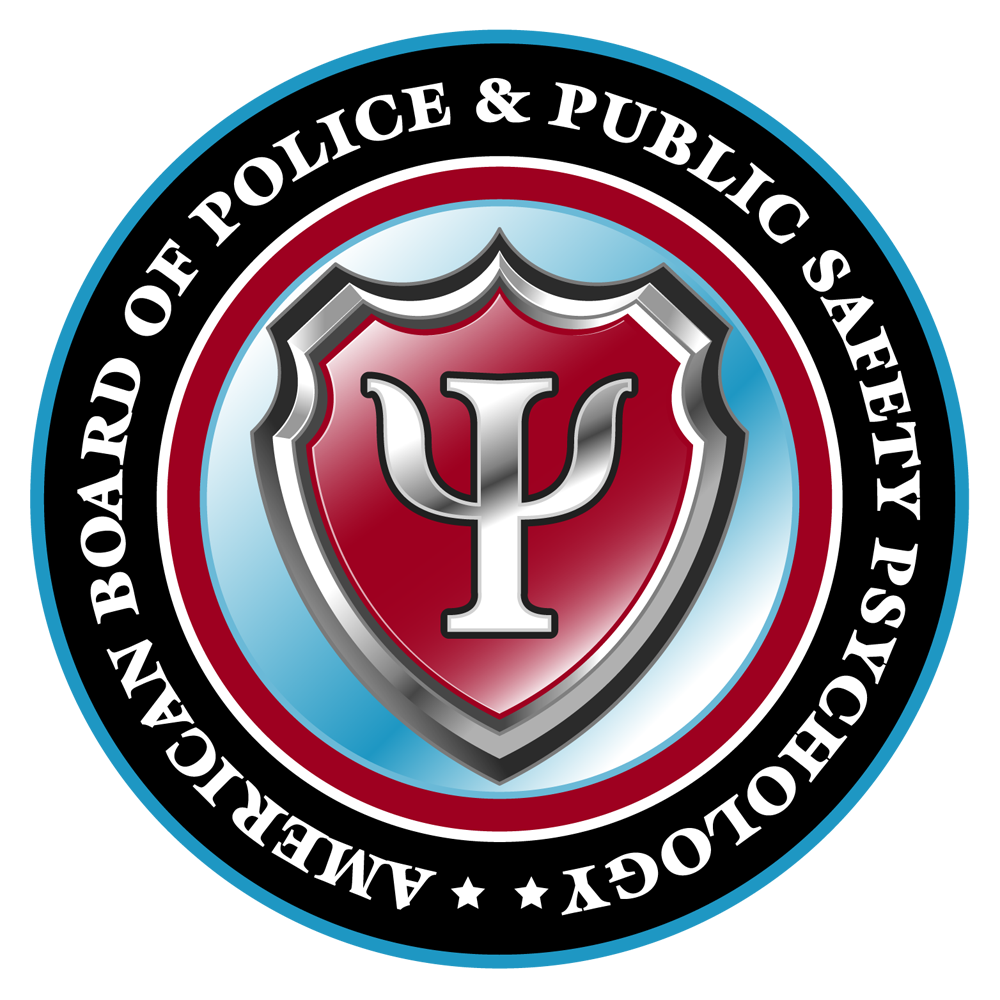8 hours | 8 CEs
This On Demand professional training program on Evaluations of Police Suitability and Fitness for Duty is presented by Dave Corey, PhD, ABPP & Mark Zelig, PhD, ABPP, in partnership with The American Board of Police and Public Safety Psychology (ABPPSP).
This program is California POST CPE approved for 8 CE hours.
This program provides a comprehensive overview of the two most common psychological evaluations conducted by police psychologists: evaluations of the psychological suitability of police candidates and the psychological fitness of incumbent police officers.
This program discusses the most prominent federal laws and regulations, professional practice guidelines, and ethical standards pertaining to these evaluations. The presenters also provide detailed procedural guidance, including advice for obtaining informed consent, providing disclosure to the involved parties, conducting clinical and collateral interviews, selecting written assessment instruments, integrating the assessment findings to reach determinations of suitability and fitness, and preparing written reports and testimony that anticipate their various audiences and uses.

Intended Audience
This on-demand professional training program is intended for mental health and other allied professionals

Experience Level
This on-demand professional training program is appropriate for beginner, intermediate, and advanced level clinicians.

CE / CPD Credit
APA, ASWB, CPA, NBCC Click here for state and other regional board approvals.
Learning Objectives
Upon completion of this program you will be able to:

Describe the relevance of no fewer than three federal statutes to police suitability and fitness evaluations

Describe the relevance of four sets of professional practice guidelines to police suitability and fitness evaluations

Describe provisions in your informed consent document that will decrease the likelihood of ethical and legal issues from arising when you provide suitability or fitness evaluations

Describe the evaluation procedures common to both police suitability and fitness evaluations, as well as procedures that are unique to each

Describe the advantages of using a data integration model in police suitability and fitness evaluations

Describe methods for avoiding four common errors in writing police suitability and fitness evaluations

Curriculum
1. Introduction
2. Legal Foundation
3. Employer Liability
4. Discrimination Law
5. Professional Guidelines & Standards - Part 1
6. Professional Guidelines & Standards - Part 2
7. Communicating OMPE Findings
Develop a Specialty Area of Practice
Transforming mental health professionals into experts
Expert Instructors
Professional training developed and delivered by the field's leading experts

CE Credit
Earn CE credit for meaningful professional training that will elevate your practice
Convenience & Flexibility
Learn at your own pace, from wherever you might be!
Program Partner
American Board of Police and Public Safety Psychology (ABPPSP)
We are proud to partner with The American Board of Police and Public Safety Psychology (ABPPSP) for this training. ABPPSP became a fully affiliated specialty board of the American Board of Professional Psychology (ABPP) on October 21, 2011. Police and Public Safety Psychology is concerned with assisting law enforcement and other public safety personnel and agencies in carrying out their missions and societal functions with optimal effectiveness, safety, health, and conformity to laws and ethics. It consists of the application of the science and profession of psychology in four primary domains of practice: assessment, clinical intervention, operational support, and organizational consultation.

CE Sponsorship Information
Palo Alto University, Continuing and Professional Studies (CONCEPT) is approved by the American Psychological Association to sponsor continuing education for psychologists. Palo Alto University, Continuing and Professional Studies (CONCEPT) maintains responsibility for this program and its content. Palo Alto University, Continuing and Professional Studies (CONCEPT) is approved by the Canadian Psychological Association to offer continuing education for psychologists. Palo Alto University, Continuing and Professional Studies (CONCEPT), SW CPE is recognized by the New York State Education Department’s State Board for Social Work as an approved provider of continuing education for licensed social workers #SW-0356 and the New York State Education Department’s State Board for Mental Health Practitioners as an approved provider of continuing education for licensed mental health counselors. #MHC-0073. Palo Alto University, Continuing and Professional Studies (CONCEPT) has been approved by NBCC as an Approved Continuing Education Provider, ACEP No. 6811. Programs that do not qualify for NBCC credit are clearly identified. CONCEPT Professional Training, #1480, is approved to offer social work continuing education by the Association of Social Work Boards (ASWB) Approved Continuing Education (ACE) program. Organizations, not individual courses, are approved as ACE providers. State and provincial regulatory boards have the final authority to determine whether an individual course may be accepted for continuing education credit. CONCEPT Professional Training maintains responsibility for this course. ACE provider approval period: 11/22/23-11/22/26. Social workers completing this course receive (clinical or social work ethics) continuing education credits.



